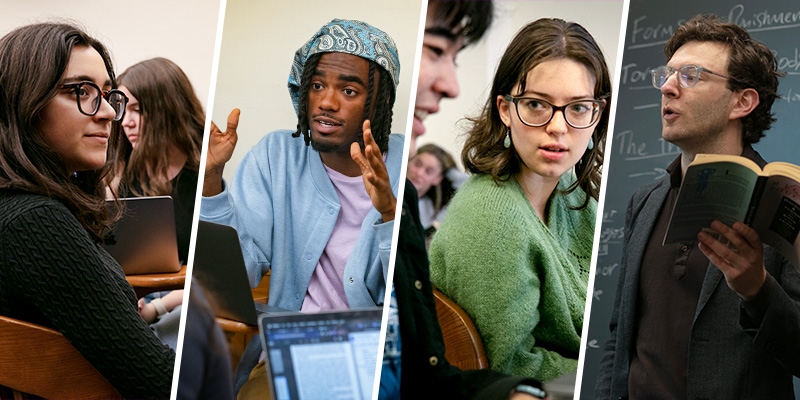The Core Curriculum is the heart of the Columbia College education. Its central intellectual mission is to provide all students with wide-ranging perspectives, a deeper understanding of history, and critical and creative thinking skills through the study of literature, science, philosophy, music, and art.
Working in small seminars, students engage actively with difficult works and concepts early in their college careers, preparing them for more advanced academic work in their chosen fields of study. The general academic skills that students develop in Core classes are useful in a range of contexts, counterbalancing the specialization of chosen majors. Most importantly, Core courses give students the opportunity to experiment with ideas, pursue their own inquiries, develop their own perspectives, and critique the shared opinions and social practices of our world through an understanding of their histories. In this way, the Core prepares students for a lifetime of critical and creative intelligence.
> The Classes
Explore the courses of the Core Curriculum and learn more about the readings, work and class structures that make up this unique educational experience.
> Registration and Policies
Information for students, faculty, and staff regarding the key policies governing the Core Curriculum and its associated courses.
> Learn About the Core
Review answers to frequently asked questions from students, meet the staff of the Center for the Core Curriculum, and learn about our history.
